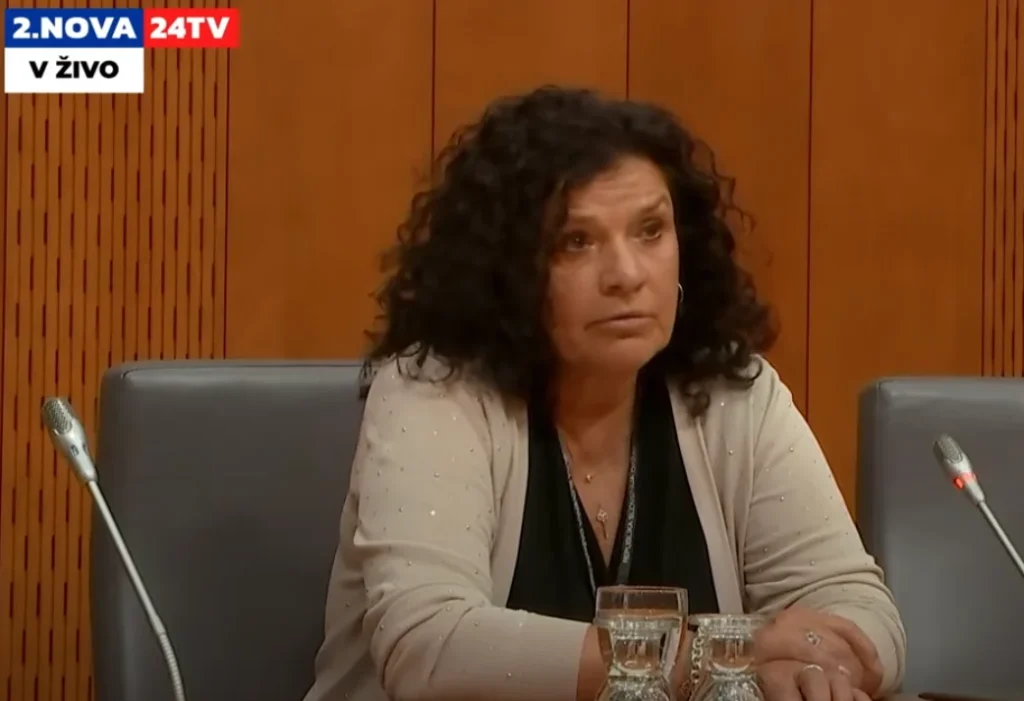At the 25th regular meeting of the National Assembly’s Commission of Inquiry for determining wrongdoing in the construction of the C0 sewerage channel in the Ljubljansko Polje aquifer area, Chairwoman Anja Bah Žibert heard two witnesses, Rok Klemše, formerly an outside employee of the Municipality of Ljubljana (MOL), and Simona Remih, an employee of the Municipality’s Department for Real Estate Management.
The hearing focused on the role of Špela Mazej, an employee of the Municipality, in obtaining contracts for easements and land purchases related to the construction of the C0 sewerage channel, as well as on alleged irregularities, including visits to landowners on Sundays – which, according to the Chairwoman Anja Bah Žibert, is not in line with her job duties.
The first witness to be heard was Rok Klemše, who explained that he had been involved in the construction of the C0 channel through a private company, Terra In, d.o.o., which is now bankrupt. The company started work on the project around 2011, and Klemše has been working with the Municipality of Ljubljana on a small scale for the last three to four years. President Bah Žibert highlighted the unusual connection of Klemše to the Jernejc family inheritance, where he was listed as an opposing party in the Grosuplje District Court proceedings. Klemše explained that this is common practice in pending inheritance proceedings, where the status of the proceedings is being checked, but he could not provide a clear explanation as to why he was involved in this at all. Later, his name was deleted from the agreement.
Bah Žibert further questioned Klemše about his cooperation with Špela Mazej, who had delivered contracts to landowners, including the Jernejc family, even on Sunday afternoons. Klemše admitted that he had once visited the landowners as a favour at Maze’s request, but stressed that this was a one-off event and that he was not aware of the details of the contracts. When asked about the possible risks of the C0 channel leak, Klemše replied that he had only read about it in the media and had not been involved in the process of obtaining permissions.
Franci Kepa, a member of the Commission, expressed surprise at Klemše’s visits on Sunday, as they were intended to act as a form of pressure on the owners. Klemše insisted that this was a one-off event and not his usual practice.
Why did Maze visit the landowners on a Sunday afternoon?
Simona Remih, Head of the Department for Real Estate Management at the Municipality, explained the role of Špela Mazej, who is employed as Analyst 6 in the section for real estate registration and land registry. MP Bah Žibert pointed out that Mazej’s job description did not mention concluding contracts, and she asked Remih how it was possible that Mazej was in the field offering compensation contracts and building consents, even on Sundays. Remih explained that the contracts were standard contracts, reviewed in advance by the competent services, and that Mazej had assisted with the field work and the transfer of documents to the landowners. She stressed the importance of teamwork at the Municipality and the inter-departmental cooperation, but she did not know why Mazej had made the visits on Sundays, which was not clear from her working hours and is also a breach of labour legislation.
Bah Žibert pointed out that Mazej had brought a buy-back agreement instead of expropriation for a key plot of land that was still obstructing the C0 channel project. Remih denied that there were any irregularities and explained that the compensation was offered to speed up the process of obtaining the right to build. She mentioned that there might be no minutes of the meetings where these tasks were agreed, as the meetings might have been informal.
Criticisms and concerns of the Commission
Chairwoman Bah Žibert expressed concern about the credibility of the procedures, as the Constitutional Court had already pointed out the unconstitutional re-categorisation of the land associated with the project. She also pointed out the link between the recent Maximarket case, where water contamination occurred, and the potential risks of the C0 sewerage channel.
Next, MP Aleksander Reberšek from the New Slovenia party (Nova Slovenija – NSi) spoke, who was critical of Remih, arguing that her support for the construction of the channel was based on loyalty to the Municipality and its Mayor Zoran Janković, and warned of the health risks associated with possible leakage of the sewerage channel. Remih insisted that she supports the construction because she believes Ljubljana needs it. Lenart Žavbi from the Freedom Movement party (Gibanje Svoboda) could not refrain from contradicting Rebršek, saying that the Maximarket case is not related to the C0 channel and that there is no evidence of irregularities by the Municipality in this case.
Bah Žibert insisted that there was a link between the two cases, as the water and waste management company VO-KA reacted too late in the case of Maximarket, which shows weaknesses in management.
The hearing revealed additional questions about the procedures for obtaining easements and contracts for the construction of the C0 sewerage channel, in particular, the role of Špela Mazej and the Sunday visits of the landowners. The Commission raised concerns about the compliance of these procedures with labour law, the credibility of the documentation and the potential risks of the project for the Ljubljana water catchment area, which are also likely to be the subject of further discussions.
A. H.


